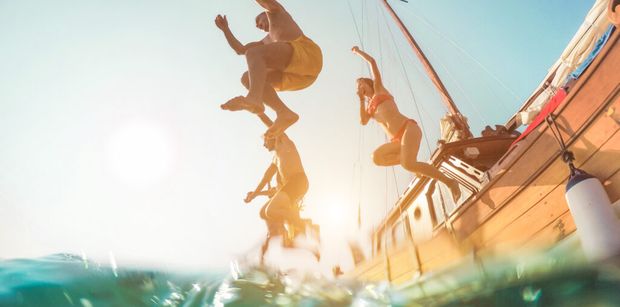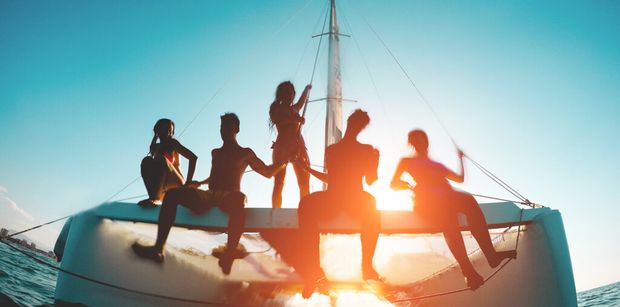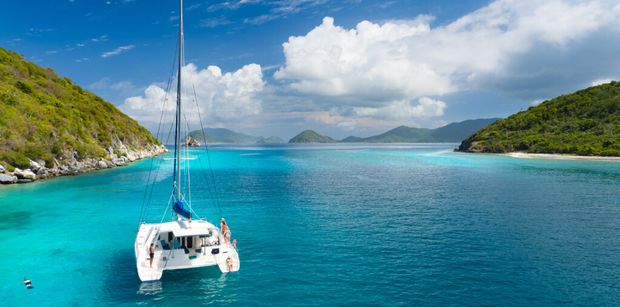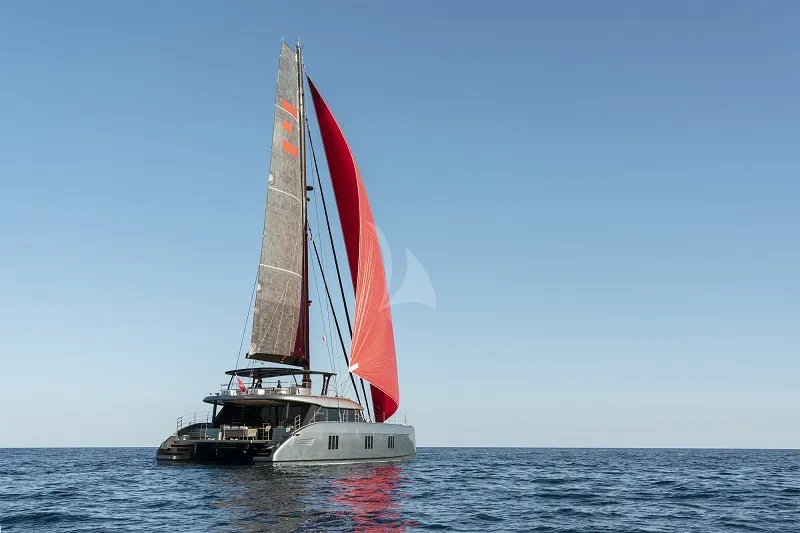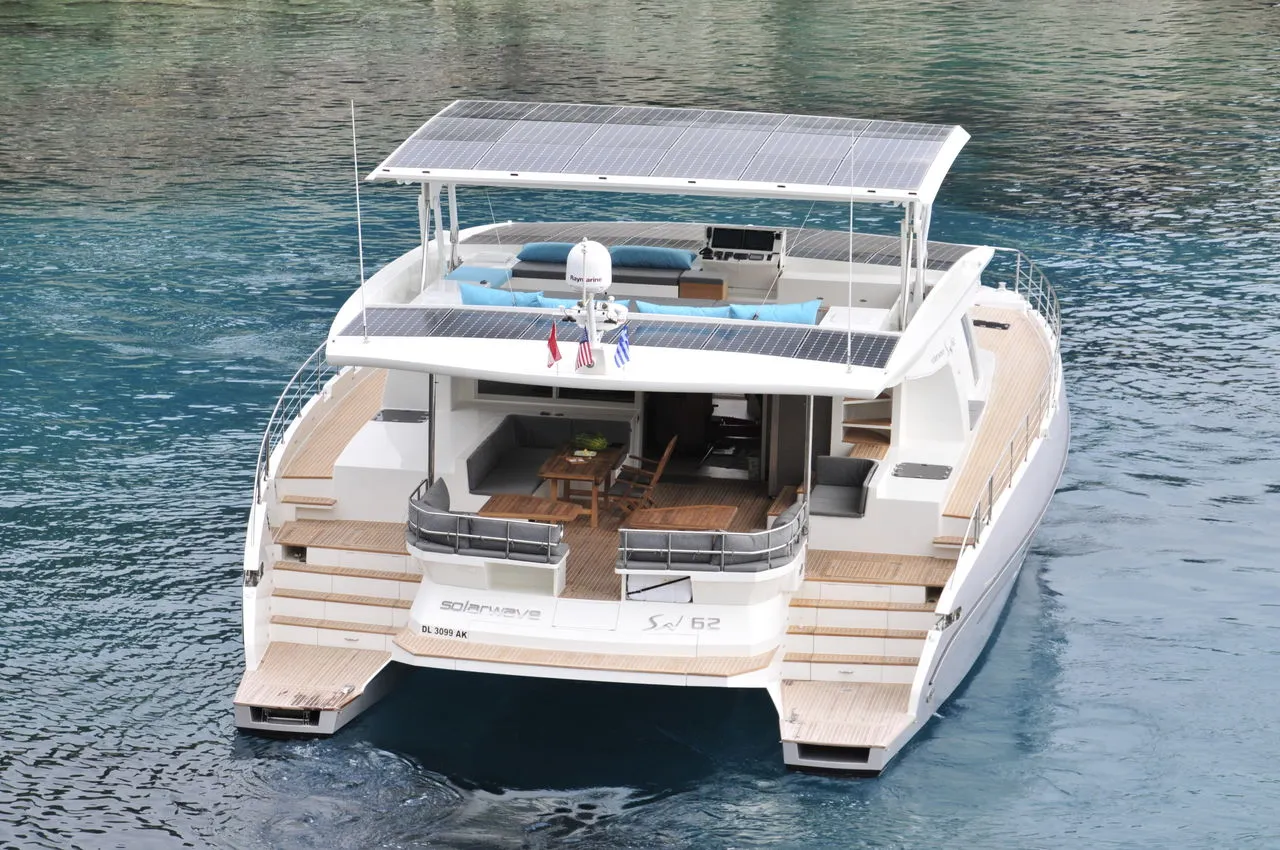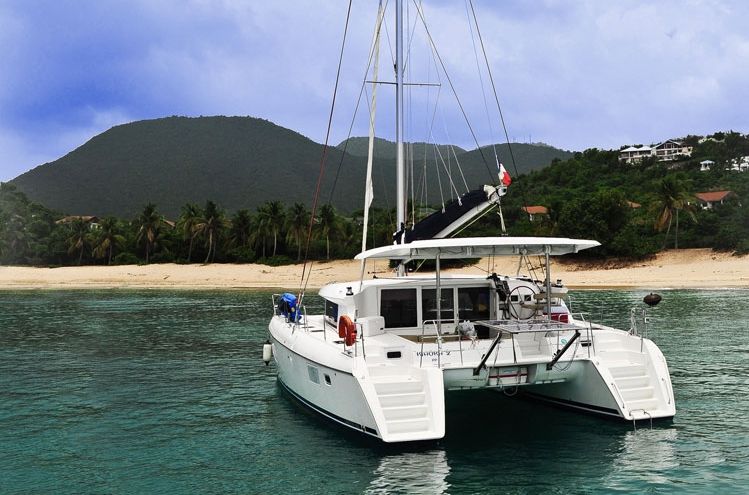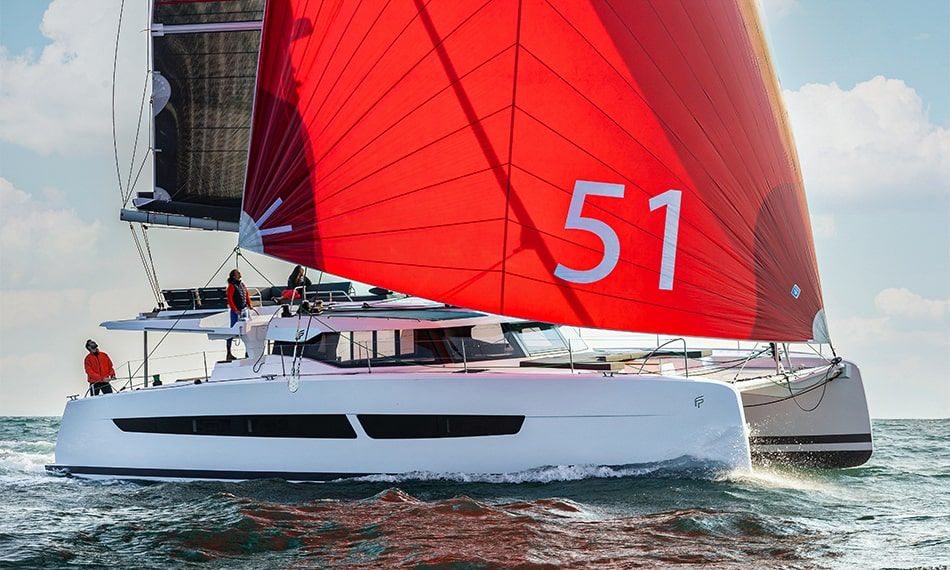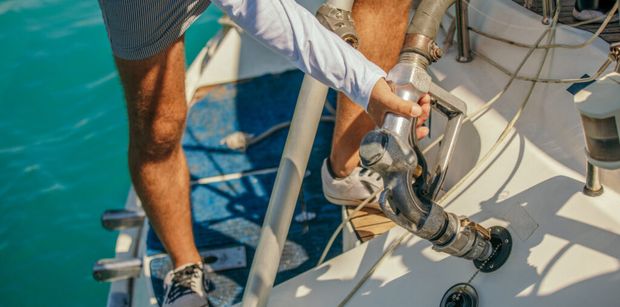The holiday season is upon us, and Christmas is not far away! What better way to enjoy the festivities than aboard a Caribbean yacht charter?
But while the festivities and celebrations get underway, sometimes sustainability can take a beak seat, where the potential for excess waste is high, and overconsumption is rife, but there are small changes that can add up to bigger impacts.
If you have decided to charter one of our crewed charter catamarans or bareboat charter catamarans this year to celebrate Christmas in the Caribbean, we have highlighted some things you can do to tread a little lighter.
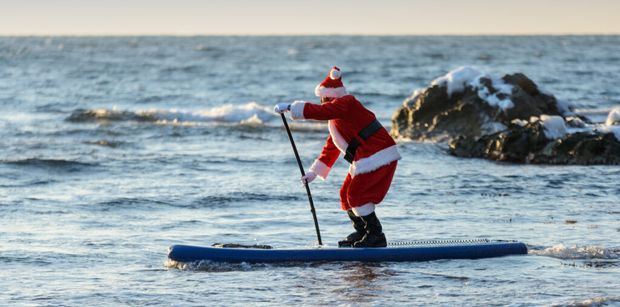
Choose a Greener Yacht
The type of boat you select is pivotal in your overall impact. At Boatbookings, we have a range of greener crewed charter catamarans you can choose from to help reduce your environmental impact. Choose more eco-conscious brands, such as Silent Yachts and Sunreef Eco Yachts, who have implemented hybrid propulsion and renewable energy into their catamaran offerings.
Buy Better Gifts
Gift-giving is synonymous with Christmas, but there are ways you can make it better for our planet and oceans. Firstly, if you want to buy physical gifts, research what you are buying; buy second-hand, ethical, local, and sustainable products. You could also introduce a Secret Santa into your yacht vacation, meaning you only buy for one family member or friend. Another idea, and perfect for those on a yacht vacation, is to purchase non-physical gifts and arrange a day out or activity for your loved ones. Think horse riding in the BVI’s, scuba diving in the Bahamas, or fishing in the USVI’s.
Or, Give Your Time
When it comes to Christmas, sometimes the sentiment of giving and receiving can get lost in overconsumption. Instead of buying and consuming any gifts, give the gift of your time. There are various initiatives within communities around the festive period to help those in need. Why not spend an afternoon of your vacation volunteering ashore? Contact us to find out about the local community volunteering projects happening in the area you are chartering in.
Offset Your Carbon
At Boatbookings, we advocate for carbon offsetting, and our handy carbon emissions calculator can help you offset your carbon on whatever yacht you choose for your Christmas vacation. This proactive and responsible response can encompass multiple benefits to steer the boating industry toward a better future. We ensure carbon credits are purchased through Climate Care, which funds UN-approved products reducing carbon emissions worldwide.
Eco-conscious playtime
All yacht charters are just as much about the toys as they are about the destination. But, there are toys you can choose to play with that do not leave as much impact on our oceans and are still as fun. Our fleet at Baotbookings has an array of more eco-conscious water sports to choose from. Spend a Christmas morning kayaking in Antigua, snorkeling the Bahamas’ reefs, or kitesurfing in the BVI’s. There are plenty of watersports options that do not leave a significant impact on the oceans in comparison to the fuel-guzzling, sound-pulsing engine-powered toys.
Natural Decor
If you want to decorate the bareboat charter catamaran you charter this Christmas, be sure to opt for decorations that are kinder to the planet. Consider reusable ornaments made from natural materials. If you are in the Caribbean, there will be plenty of pretty shells and driftwood to choose from versus plastic decorations.
Eat Locally
Eating locally and seasonally not only tastes better but also reduces your overall impact on food miles. The Caribbean offers plenty of opportunities to savor the region’s rich flavors. From sustainably caught seafood to ripe tropical fruits and Caribbean spices, there are many culinary choices to enjoy this Christmas.
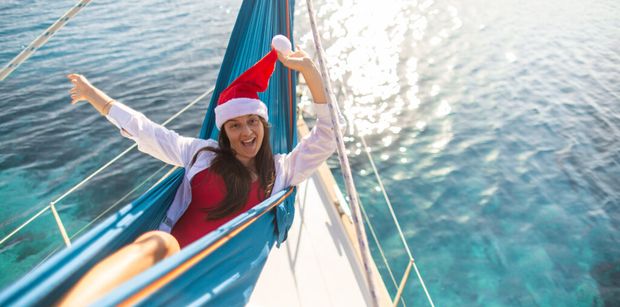
More memories, less impact
By making more conscious decisions this Christmas, you can ensure you have less impact aboard your greener crewed or bareboat charter catamaran. Contact the Boatbookings team to finalize your Christmas charter in the Caribbean today!

